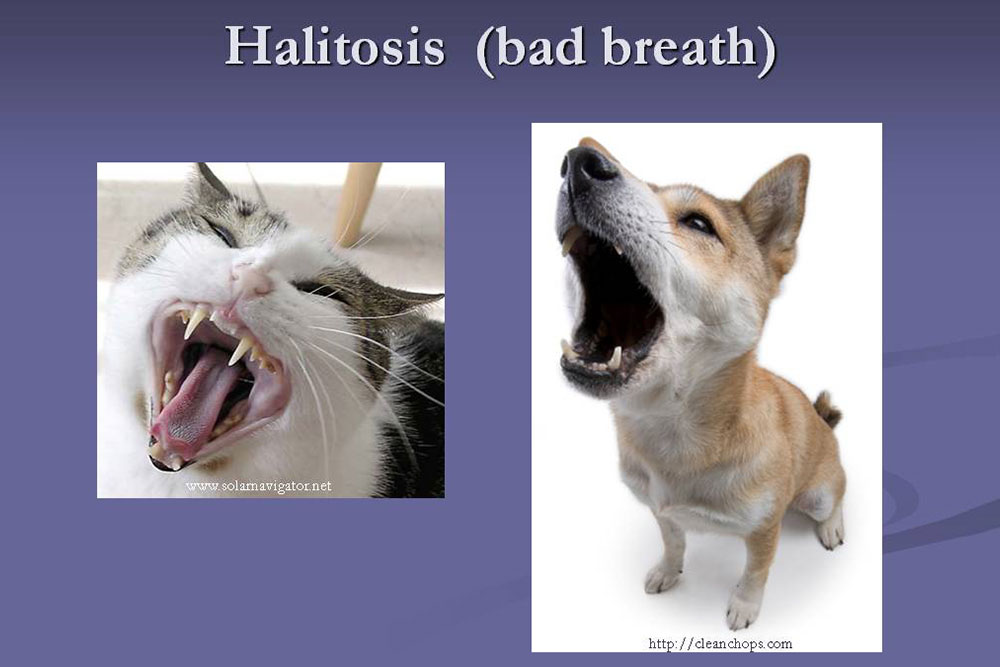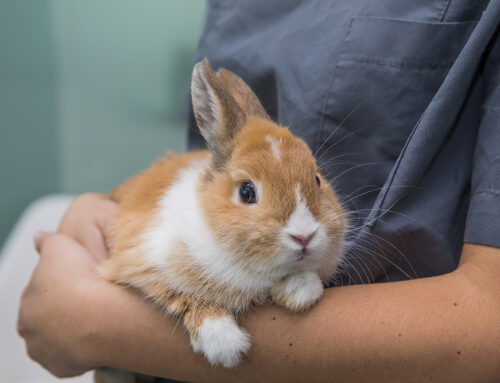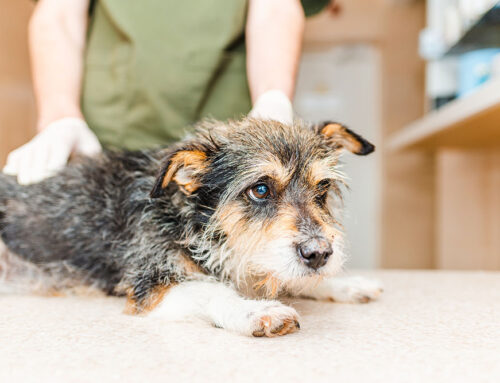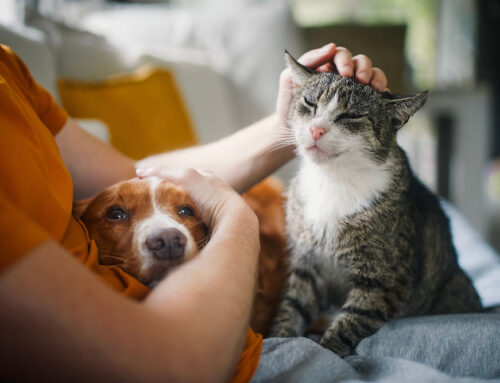“Why does my pet’s breath smell?” – The Truth About Bad Breath
April Larson, DVM
Bad breath, or halitosis, is never normal! Not in our mouths and not in your pet’s mouth. Halitosis is the medical term defining that offensive odor that comes from the mouth producing “bad breath.”
There may be a number of causes for this condition:
- Nasal/sinus inflammation
- Gastrointestinal issues – especially the esophagus
- Metabolic conditions – diabetes, liver, or kidney disease
- Injuries/foreign objects – sticks, grass awns, pieces of toys/rawhides/bones
- Dietary indiscretion – coprophagia (feces eating), etc
- Periodontal disease – most common cause!
Patient with stick stuck in upper jaw
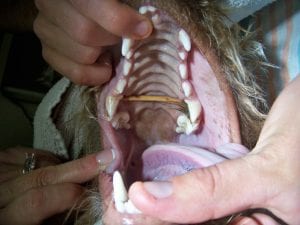
 Periodontal disease – tartar, plaque, and gingivitisPatient with abscess caused by diseased tooth
Periodontal disease – tartar, plaque, and gingivitisPatient with abscess caused by diseased tooth
Periodontal disease results from bacteria in the mouth. In fact, 85% of dogs and cats over 3 years of age have periodontal disease. Regardless of the cause of the bad breath, its presence means there is bacteria buildup. This is often the first sign of something serious happening in your pet’s mouth.
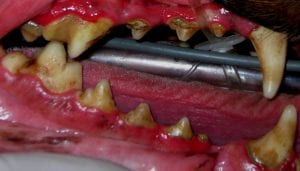
In some cases multiple causes are to blame. For example, there may be periodontal disease along with a foreign object (such as a stick) stuck in the mouth. Treatment for the condition is dependent upon the cause(s). An examination with your veterinarian is an important first step to address bad breath. Based on this examination, we can determine the next best step and treatment. For periodontal disease, dental care is the answer!
As in humans, unchecked periodontal disease can have negative health impacts on other aspects of your pet’s health:
- Gum and bone tissue can be lost and a hole (or fistula) can form into the nasal cavity
- Jaw fractures can occur from weakening of the jaw bone
- Bone infection (osteomyelitis)
Bacteria can enter the bloodstream and be carried around the body and result in:
- Deleterious effects on heart, liver, kidneys
- Poorer control of diabetes mellitus with higher chance of severe complications
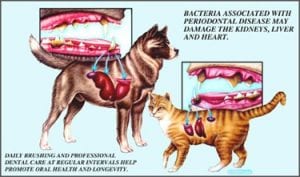 Daily teeth brushing can help prevent the plaque buildup as well as preventing your dog from eating bad-smelling foods (garbage, feces). Keeping your yard clean and picking up feces right away can help with this.
Daily teeth brushing can help prevent the plaque buildup as well as preventing your dog from eating bad-smelling foods (garbage, feces). Keeping your yard clean and picking up feces right away can help with this.
By the time bad breath develops in a dog’s or cat’s mouth, most bacteria and plaque buildup has become advanced enough that it requires professional dental care to address. This includes x-rays of the inside of the mouth, examining the mouth for any tooth mobility or damage, and cleaning/polishing the teeth to remove the plaque, tartar, and bacteria build-up. These diagnostics and treatments can only be done under anesthesia. Bad breath in your cat’s or dog’s mouth is a sign that we should not ignore!
Let’s work together to figure out the cause and best treatment to get your pet’s mouth smelling pleasant again.
Call us with questions at 303-841-8833.


